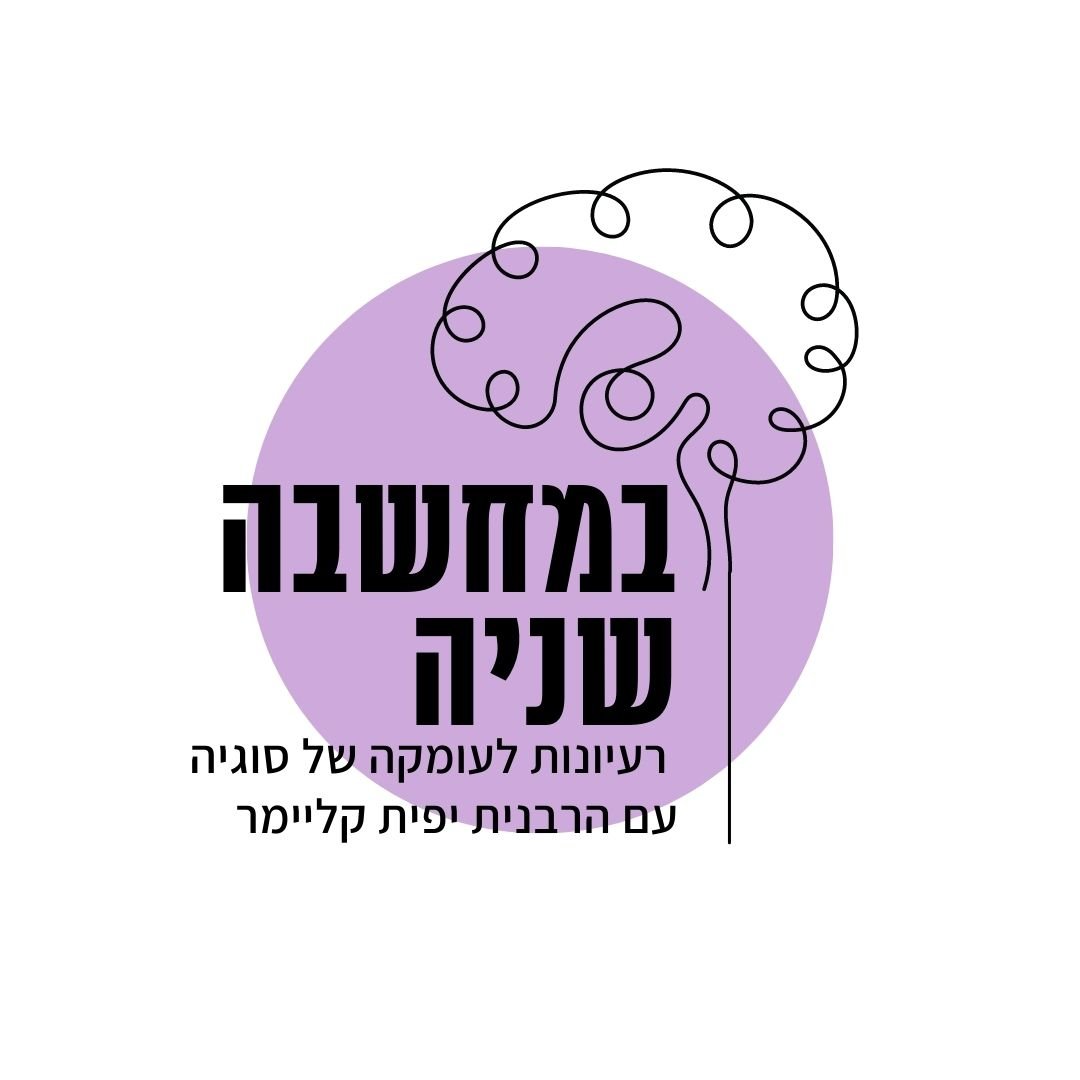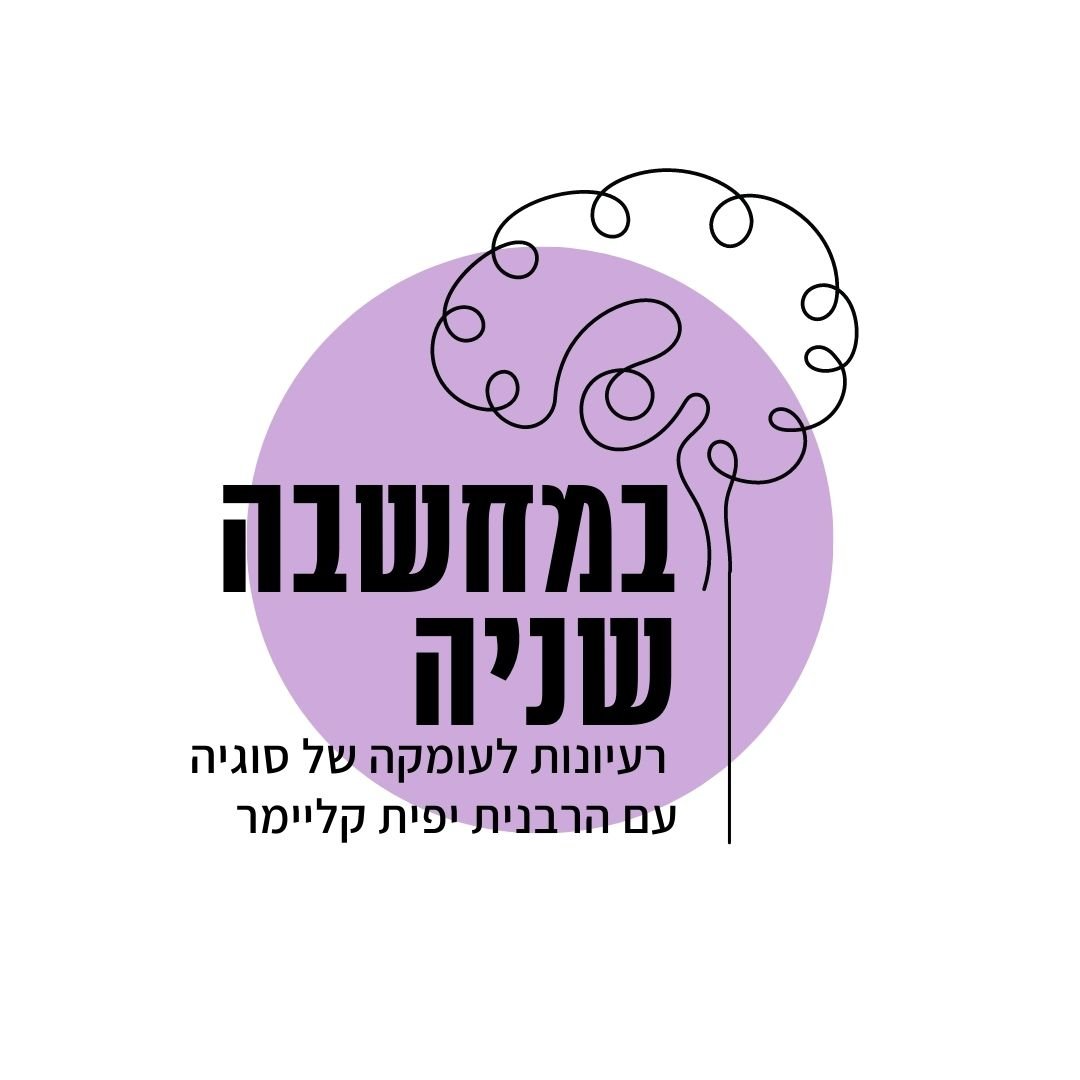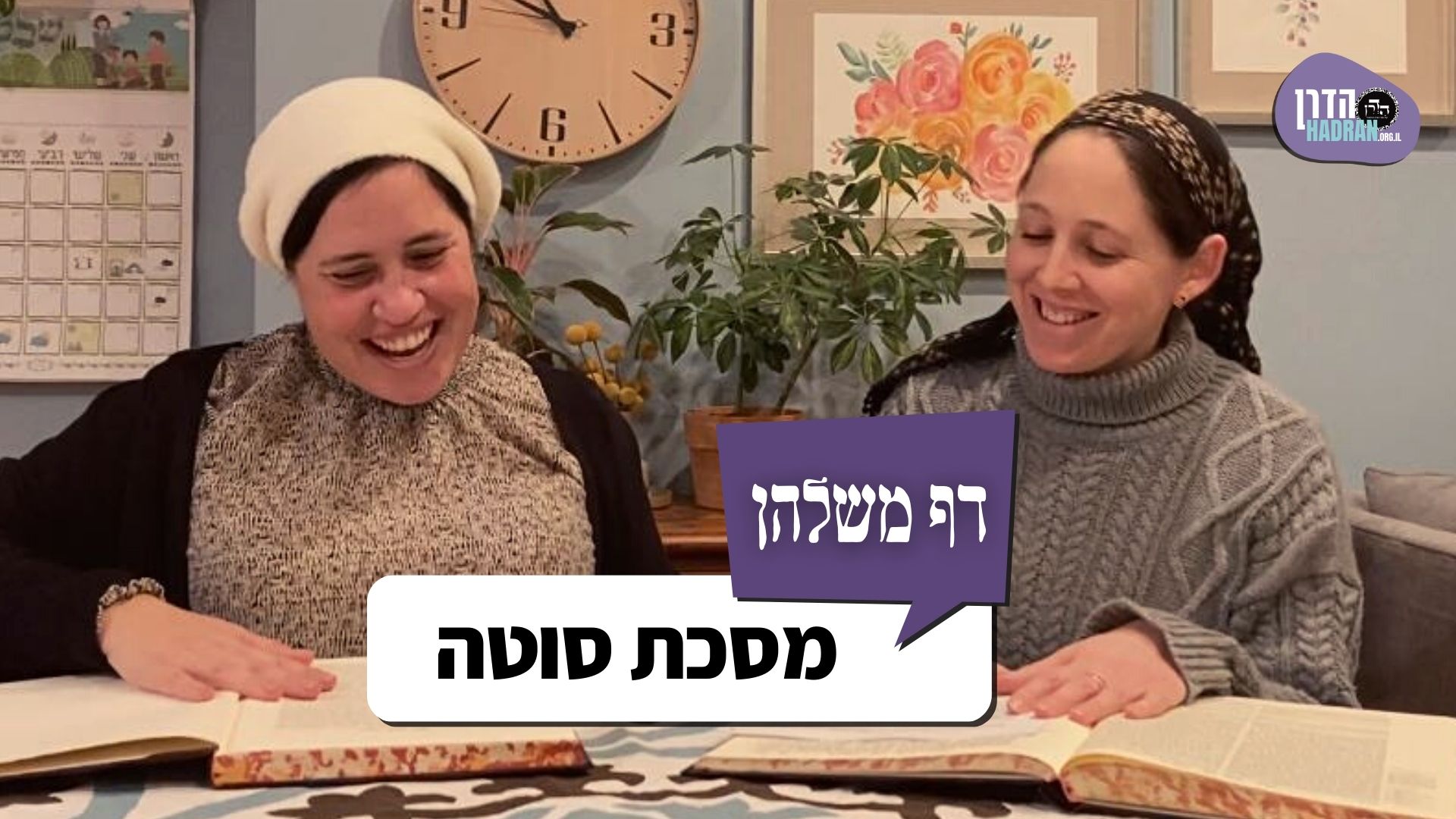סוטה כה
וּשְׁמוּאֵל אָמַר: אֲנָא דַּאֲמַרִי — אֲפִילּוּ לְרַבִּי יֹאשִׁיָּה. מִדְּאִיצְטְרִיךְ קְרָא לְרַבּוֹיַהּ — מִכְּלָל דְּלָאו אִשְׁתּוֹ הִיא כְּלָל.
And Shmuel could have said: I state my opinion even according to the opinion of Rabbi Yoshiya. Since it was necessary for the verse to specifically include in the sota ritual a yevama who engaged in sexual intercourse with her yavam, by inference one may conclude that she is not his wife at all with regard to any matters other than those explicit in the verse.
אִיבַּעְיָא לְהוּ: עוֹבֶרֶת עַל דָּת צְרִיכָה הַתְרָאָה לְהַפְסִידָהּ כְּתוּבָּתָהּ, אוֹ אֵינָהּ צְרִיכָה? מִי אָמְרִינַן: כֵּיוָן דְּעוֹבֶרֶת עַל דָּת הִיא — לָא בָּעֲיָא הַתְרָאָה, אוֹ דִלְמָא תִּיבְעֵי הַתְרָאָה, דְּאִי הָדְרָה בַּהּ תִּיהְדַּר בַּהּ?
§ A dilemma was raised before the Sages: With regard to a woman who violates the precepts of halakha or Jewish custom with regard to modesty, who may be divorced without payment of her marriage contract, is forewarning from her husband required in order to cause her to forfeit her right to collect payment of her marriage contract or is forewarning not required? Do we say that since she is a woman who violates the precepts, forewarning is not required, as she is aware that her actions are prohibited? Or perhaps forewarning is required, so that if she desires to repent, she will be reminded to repent?
תָּא שְׁמַע: אֲרוּסָה וְשׁוֹמֶרֶת יָבָם לֹא שׁוֹתוֹת וְלֹא נוֹטְלוֹת כְּתוּבָה. מִישְׁתָּא הוּא דְּלָא שָׁתְיָא, הָא קַנּוֹיֵי מְקַנֵּי לַהּ. לְמַאי? לָאו לְהַפְסִידָהּ כְּתוּבָּתָהּ?
The Gemara suggests: Come and hear a proof from the mishna: A betrothed woman and a widow awaiting her yavam neither drink the bitter water nor collect payment of their marriage contracts. It is possible to infer that she does not drink, but the husband or yavam can warn her against secluding herself with another man. For what halakha is his warning relevant? Is it not relevant to cause her to forfeit her right to collect payment of her marriage contract? Accordingly, a woman forfeits payment of her marriage contract due to immodest behavior only if she is warned.
אָמַר אַבָּיֵי: לָא, לְאוֹסְרָהּ עָלָיו. רַב פָּפָּא אָמַר: לְהַשְׁקוֹתָהּ כְּשֶׁהִיא נְשׂוּאָה. כִּדְתַנְיָא: אֵין מְקַנִּין לַאֲרוּסָה לְהַשְׁקוֹתָהּ כְּשֶׁהִיא אֲרוּסָה, אֲבָל מְקַנִּין לַאֲרוּסָה לְהַשְׁקוֹתָהּ כְּשֶׁהִיא נְשׂוּאָה.
Abaye said: No, the relevance of the warning of the husband or yavam is to render her forbidden to him in the event that she secludes herself with another man. Rav Pappa said: The relevance of the warning is to have her drink if she secludes herself with another man when she is married, as it is taught in a baraita: One does not issue a warning to a betrothed woman in order to have her drink while she is betrothed. However, one can issue a warning to a betrothed woman in order to have her drink when she is married.
אָמַר רָבָא, תָּא שְׁמַע: אַלְמָנָה לְכֹהֵן גָּדוֹל, גְּרוּשָׁה וַחֲלוּצָה לְכֹהֵן הֶדְיוֹט, מַמְזֶרֶת וּנְתִינָה לְיִשְׂרָאֵל, בַּת יִשְׂרָאֵל לְמַמְזֵר וּלְנָתִין — לֹא שׁוֹתוֹת וְלֹא נוֹטְלוֹת כְּתוּבָה.
Rava said: Come and hear a proof from the continuation of the mishna: A widow who was married to a High Priest, or a ḥalutza who was married to a common priest, or a mamzeret or Gibeonite woman who was married to a Jew of unflawed lineage, or a Jewish woman of unflawed lineage who was married to a mamzer or a Gibeonite; all of these women neither drink the bitter water nor collect payment of their marriage contracts.
מִישְׁתָּא הוּא דְּלָא שָׁתְיָא, הָא קַנּוֹיֵי מְקַנֵּי לְהוּ. וּלְמַאי? אִי לְאוֹסְרָן עָלָיו — הָא אֲסִירָן וְקָיְימָן, אֶלָּא לָאו: לְהַפְסִידָן כְּתוּבָּתָן?
The Gemara infers: She does not drink, but the husband or yavam can warn her against secluding herself with another man. But for what halakha is his warning relevant? If it is in order to prohibit these women to him, aren’t they currently prohibited to him? Rather, is it not relevant to cause them to forfeit their rights to collect payment of their marriage contracts? This indicates that only when a woman is warned in advance does her immodest behavior cause her to forfeit her right to collect payment of her marriage contract.
אָמַר רַב יְהוּדָה מִדִּיסְקַרְתָּא: לָא, לְאוֹסְרָהּ לַבּוֹעֵל כַּבַּעַל. דִּתְנַן: כְּשֵׁם שֶׁאֲסוּרָה לַבַּעַל — כָּךְ אֲסוּרָה לַבּוֹעֵל.
Rav Yehuda of Diskarta said: No, the relevance of the warning is to render her permanently forbidden to her paramour, should she seclude herself with him, just as she would become forbidden to her husband, as we learned in a mishna (27b): Just as she is forbidden to her husband, so is she forbidden to her paramour.
אָמַר רַב חֲנִינָא מִסּוּרָא: תָּא שְׁמַע, וְאֵלּוּ שֶׁבֵּית דִּין מְקַנִּין לָהֶן: מִי שֶׁנִּתְחָרֵשׁ בַּעְלָהּ, אוֹ נִשְׁתַּטָּה, אוֹ שֶׁהָיָה חָבוּשׁ בְּבֵית הָאֲסוּרִין. וְלֹא לְהַשְׁקוֹתָהּ אָמְרוּ, אֶלָּא לְפוֹסְלָהּ מִכְּתוּבָּתָהּ. שְׁמַע מִינַּהּ בָּעֵי הַתְרָאָה. שְׁמַע מִינַּהּ.
Rav Ḥanina of Sura said: Come and hear a proof from the continuation of the mishna: And these are the women to whom the court issues a warning in place of their husbands: One whose husband became a deaf-mute or became an imbecile, or was incarcerated in prison. And the Sages said that the court warns her not in order to have her drink the bitter water if she disobeys the warning; rather in order to disqualify her from receiving payment of her marriage contract. Since the sole purpose of the warning issued by the court is to disqualify her from receiving payment of her marriage contract in the event she secludes herself with the man, one can learn from the mishna that similarly, a woman who violates the precepts requires forewarning. The Gemara concludes: Indeed, one can learn from the mishna that a warning is required.
וְכוּלְּהוּ, מַאי טַעְמָא לָא אָמְרִי מֵהָא! דִּלְמָא שָׁאנֵי הָתָם, דְּלֵית לַהּ אֵימְתָא דְבַעַל כְּלָל.
The Gemara asks: With regard to all of the other Sages, who proposed inconclusive proofs from other clauses of the mishna, what is the reason they did not say that proof can be adduced from this explicit statement? The Gemara answers: They reasoned that perhaps it is different there, as the wife has no fear of her husband at all, since he is either incapacitated or incarcerated, and therefore she must be warned first. In other cases, an explicit warning is unnecessary.
אִיבַּעְיָא לְהוּ: עוֹבֶרֶת עַל דָּת וְרָצָה בַּעַל לְקַיְּימָהּ, מְקַיְּימָהּ אוֹ אֵינוֹ מְקַיְּימָהּ? מִי אָמְרִינַן בִּקְפִידָה דְבַעַל תְּלָא רַחֲמָנָא, וְהָא לָא קָפֵיד. אוֹ דִלְמָא כֵּיוָן דְּקָפֵיד — קָפֵיד?
A dilemma was raised before the Sages: If a woman violates the precepts and her husband desires to maintain her as his wife, may he maintain her as his wife or may he not maintain her as his wife? Do we say that the Merciful One made the requirement to divorce her dependent on the husband’s objection to her behavior, and as this husband does not raise an objection he may maintain her as his wife? Or perhaps, since the Torah objects to this behavior, it is considered as though he objected, as the requirement to divorce her is due to the Torah’s objection to this behavior, irrespective of the husband’s wishes.
תָּא שְׁמַע, וְאֵלּוּ שֶׁבֵּית דִּין מְקַנִּין לָהֶן: מִי שֶׁנִּתְחָרֵשׁ בַּעְלָהּ, אוֹ נִשְׁתַּטָּה, אוֹ שֶׁהָיָה חָבוּשׁ בְּבֵית הָאֲסוּרִין. וְאִי אָמְרַתְּ רָצָה בַּעַל לְקַיְּימָהּ מְקַיְּימָהּ, עָבְדִי בֵּית דִּין מִידֵּי דְּדִלְמָא לָא נִיחָא לֵיהּ לְבַעַל? סְתָמָא דְמִילְּתָא: כֵּיוָן דְּעוֹבֶרֶת עַל דָּת הִיא — מֵינָח נִיחָא לֵיהּ.
The Gemara cites proof: Come and hear the mishna: And these are the women to whom the court issues a warning in place of their husbands: One whose husband became a deaf-mute or became an imbecile, or was incarcerated in prison. And if you say that should the husband desire to maintain her as his wife he may maintain her as his wife, perhaps he may not want the court to warn her. Would the court perform a matter that is perhaps not amenable to the husband? The Gemara replies: The ordinary situation is that since she is violating the precepts, it is amenable to the husband to divorce her, and the court acts under this assumption.
אִיבַּעְיָא לְהוּ: בַּעַל שֶׁמָּחַל עַל קִינּוּיוֹ — קִינּוּיוֹ מָחוּל, אוֹ אֵינוֹ מָחוּל? מִי אָמְרִינַן בְּקִינּוּי דְּבַעַל תְּלָא רַחֲמָנָא, וּבַעַל הָא מָחֵיל לֵיהּ לְקִינּוּיוֹ, אוֹ דִלְמָא: כֵּיוָן דְּקַנִּי לַיהּ מֵעִיקָּרָא — לָא מָצֵי מָחֵיל לֵיהּ?
§ A dilemma was raised before the Sages: With regard to a husband who issued a warning to his wife and later retracted his warning, as he did not wish his wife to acquire the status of a sota, is his warning retracted, or is it not retracted? Do we say that the Merciful One made acquiring the status of a sota dependent on the husband’s warning, and the husband retracted his warning? Or perhaps, since he warned her at the outset, he can no longer retract his warning?
תָּא שְׁמַע, וְאֵלּוּ שֶׁבֵּית דִּין מְקַנִּין לָהֶן: מִי שֶׁנִּתְחָרֵשׁ בַּעְלָהּ, אוֹ נִשְׁתַּטָּה, אוֹ שֶׁהָיָה חָבוּשׁ בְּבֵית הָאֲסוּרִין. וְאִי אָמְרַתְּ בַּעַל שֶׁמָּחַל עַל קִינּוּיוֹ — קִינּוּיוֹ מָחוּל, עָבְדִינַן מִידֵּי דְּאָתֵי בַּעַל מָחֵיל לֵיהּ? סְתָמָא דְמִלְּתָא, אָדָם מַסְכִּים עַל דַּעַת בֵּית דִּין.
The Gemara cites proof that the husband cannot retract his warning: Come and hear the mishna: And these are the women to whom the court issues a warning in place of their husbands: One whose husband became a deaf-mute or became an imbecile, or was incarcerated in prison. And if you say that in the case of a husband who retracted his warning, his warning is retracted, would we, i.e., the court, do something that the husband can come and retract? This would cause a diminution of the esteem of the court. The Gemara replies: The ordinary situation is that a person concurs with the opinion of the court and would not retract a warning issued by the court, so this is not a concern. Therefore, no proof can be brought from the mishna.
תָּא שְׁמַע: וּמוֹסְרִין לוֹ שְׁנֵי תַּלְמִידֵי חֲכָמִים, שֶׁמָּא יָבֹא עָלֶיהָ בַּדֶּרֶךְ. וְאִי אָמְרַתְּ בַּעַל שֶׁמָּחַל עַל קִינּוּיוֹ — קִינּוּיוֹ מָחוּל, לַחְלֵיהּ לְקִינּוּיֵהּ וְלִבְעוֹל!
The Gemara cites proof: Come and hear another mishna (7a): When the husband takes the sota to the Temple, he first takes her to the local court, and the court provides him with two Torah scholars who accompany them, lest he engage in sexual intercourse with her on the way to the Temple, which is prohibited due to her status as a sota. And if you say that with regard to a husband who retracted his warning, his warning is retracted, let him retract his warning and engage in sexual intercourse with her.
מַאי שְׁנָא תַּלְמִידֵי חֲכָמִים — דִּגְמִירִי, דְּאִי בָּעֵי לְמִיבְעַל, אָמְרִי לֵיהּ: אַחֲלֵיהּ לְקִינּוּיָיךְ וּבַעְלַהּ.
The Gemara replies that perhaps the husband can retract his warning: What is different about Torah scholars that they are chosen to accompany the husband? They differ from other people as they are learned, and if they see that the husband desires to engage in sexual intercourse with his wife, they say to him: Retract your warning and then you may engage in sexual intercourse with her in a permitted manner.
תָּא שְׁמַע, דְּאָמַר רַבִּי יֹאשִׁיָּה: שְׁלֹשָׁה דְּבָרִים סָח לִי זְעֵירָא מֵאַנְשֵׁי יְרוּשָׁלַיִם: בַּעַל שֶׁמָּחַל עַל קִינּוּיוֹ — קִינּוּיוֹ מָחוּל, וְזָקֵן מַמְרֵא שֶׁרָצוּ בֵּית דִּין לִמְחוֹל לוֹ — מוֹחֲלִין לוֹ, וּבֵן סוֹרֵר וּמוֹרֶה שֶׁרָצוּ אָבִיו וְאִמּוֹ לִמְחוֹל לוֹ — מוֹחֲלִין לוֹ.
The Gemara cites proof: Come and hear that which Rabbi Yoshiya says: Ze’eira, who was one of the men of Jerusalem, told me three matters: A husband who retracted his warning, his warning is retracted; and in the case of a rebellious Elder whom the court wishes to forgive, the court may forgive him; and in the case of a stubborn and rebellious son whose father and mother wish to forgive him for his sins, they may forgive him.
וּכְשֶׁבָּאתִי אֵצֶל חֲבֵירַי שֶׁבַּדָּרוֹם, עַל שְׁנַיִם הוֹדוּ לִי, וְעַל זָקֵן מַמְרֵא לֹא הוֹדוּ לִי — שֶׁלֹּא יִרְבּוּ מַחֲלוֹקֹת בְּיִשְׂרָאֵל. שְׁמַע מִינַּהּ: בַּעַל שֶׁמָּחַל עַל קִינּוּיוֹ — קִינּוּיוֹ מָחוּל. שְׁמַע מִינַּהּ.
And when I came to my colleagues in the South and told them these rulings, they agreed with me with regard to two of them, but with regard to forgiving a rebellious Elder they did not agree with me. They held that a rebellious Elder cannot be forgiven, in order that discord not proliferate among the Jewish people. The Gemara comments: One can conclude from Rabbi Yoshiya’s statement that with regard to a husband who retracted his warning, his warning is retracted. The Gemara concludes: Indeed, one can conclude from Rabbi Yoshiya’s statement that the husband can retract his warning.
פְּלִיגִי בַּהּ רַב אַחָא וְרָבִינָא. חַד אָמַר: קוֹדֶם סְתִירָה — מָחוּל, לְאַחַר סְתִירָה — אֵינוֹ מָחוּל. וְחַד אָמַר: לְאַחַר סְתִירָה, נָמֵי מָחוּל. וּמִסְתַּבְּרָא כְּמַאן דְּאָמַר אֵינוֹ מָחוּל,
Rav Aḥa and Ravina disagree with regard to the limits of this halakha permitting a husband to retract his warning. One says that if he retracts his warning before her seclusion with another man, his warning is retracted, but if he retracts his warning after her seclusion with another man, it is not retracted. And one says that if he retracts his warning after her seclusion with another man, it is also retracted. And it is reasonable to hold according to the one who says that the husband’s warning is not retracted after her seclusion with another man.
מִמַּאי — מִדְּקָא מְהַדְּרִי רַבָּנַן לְרַבִּי יוֹסֵי. דְּתַנְיָא, רַבִּי יוֹסֵי אוֹמֵר: בַּעְלָהּ נֶאֱמָן עָלֶיהָ, מִקַּל וָחוֹמֶר: וּמָה נִדָּה שֶׁהִיא בְּכָרֵת — בַּעְלָהּ נֶאֱמָן עָלֶיהָ, סוֹטָה שֶׁהִיא בְּלָאו, לֹא — כׇּל שֶׁכֵּן?
The Gemara asks: From where can one derive that after the wife’s seclusion with another man, the warning cannot be retracted? It can be derived from the answer that the Rabbis gave in reply to Rabbi Yosei, as it is taught in a baraita: Rabbi Yosei says: It is unnecessary to provide an escort to accompany the sota and her husband, as the husband of a sota is trusted not to engage in sexual intercourse with her, on the basis of an a fortiori inference: And just as in the case of a menstruating woman, who is prohibited from engaging in sexual intercourse with her husband by penalty of karet, her husband is nevertheless trusted with regard to her, as he is permitted to seclude himself with her, so too, with regard to a sota, who is prohibited from engaging in sexual intercourse with her husband only by an ordinary prohibition, is it not all the more so that he should be trusted?
אָמְרוּ לוֹ: לֹא, אִם אָמַרְתָּ בְּנִדָּה — שֶׁכֵּן יֵשׁ לָהּ הֶיתֵּר, תֹּאמַר בְּסוֹטָה — שֶׁאֵין לָהּ הֶיתֵּר.
The Rabbis said to Rabbi Yosei: No, if you say that he is trusted with regard to a menstruating woman, the reason is not due to the severity of the prohibition. Rather, he is trusted because she has the ability to become permitted to her husband after her menstrual flow has ceased and she has immersed in a ritual bath. Shall you also say that he is trusted with regard to a sota, who potentially does not have the ability to become permitted to her husband, due to her suspected adultery?
וְאִי אָמְרַתְּ לְאַחַר סְתִירָה מָחוּל לָהּ, מַשְׁכַּחַתְּ לַהּ דְּיֵשׁ לָהּ הֶיתֵּר, דְּאִי בָּעֵי מָחֵיל לֵיהּ לְקִינּוּיֵהּ וּבָעֵיל. אֶלָּא שְׁמַע מִינַּהּ: לְאַחַר סְתִירָה אֵינוֹ מָחוּל. שְׁמַע מִינַּהּ.
The Gemara explains the proof: And if you say that after her seclusion with another man the warning can be retracted for her, you therefore find an instance in which the sota has the ability to become permitted to her husband, as, if the husband desires he can retract his warning and engage in sexual intercourse with her. Rather, conclude from the Rabbis’ statement that if he retracts his warning after her seclusion with another man, the warning is not retracted. The Gemara concludes: Indeed, one can conclude from the Rabbis’ statement that the warning cannot be retracted.
מֵתוּ בַּעְלֵיהֶן עַד שֶׁלֹּא שָׁתוּ, בֵּית שַׁמַּאי כּוּ׳. בְּמַאי קָמִיפַּלְגִי? בֵּית שַׁמַּאי סָבְרִי: שְׁטָר הָעוֹמֵד לִגְבּוֹת — כְּגָבוּי דָּמֵי.
§ The mishna states: If the husbands of the sota women died before their wives drank the bitter water, Beit Shammai say: They collect payment of their marriage contracts and they do not drink the bitter water. And Beit Hillel say: They either drink the bitter water or they do not collect payment of their marriage contracts. The Gemara asks: With regard to what do Beit Shammai and Beit Hillel disagree? The Gemara answers: Beit Shammai hold that a promissory note that stands to be collected is considered to be as though it was already collected, and since the woman possesses the marriage contract, the payment of the marriage contract is considered as though it is already in her possession. Since the burden of proof rests upon the claimant, she does not lose her rights to the money unless the inheritors prove that she committed adultery.
וּבֵית הִלֵּל סָבְרִי: שְׁטָר הָעוֹמֵד לִגְבּוֹת — לָאו כְּגָבוּי דָּמֵי.
And Beit Hillel hold that a promissory note that stands to be collected is not considered as though it was already collected. Therefore, the payment of the marriage contract is not considered to be in the wife’s possession, and as this means that she is the claimant, she is not entitled to the money unless she proves that she did not commit adultery.
מְעוּבֶּרֶת חֲבֵירוֹ כּוּ׳. אָמַר רַב נַחְמָן אָמַר רַבָּה בַּר אֲבוּהּ: מַחְלוֹקֶת בַּעֲקָרָה וּזְקֵינָה.
§ The mishna states (24a): A woman who was pregnant with the child of another man at the time of her marriage…A sexually underdeveloped woman, who is incapable of bearing children [ailonit], and an elderly woman, and a woman who is incapable of giving birth for other reasons, neither collect payment of their marriage contracts nor drink the bitter water. Rabbi Elazar says: He can marry another woman and procreate through her; therefore these are considered permitted marriages, and the women can drink the bitter water. Rav Naḥman says that Rabba bar Avuh says: The dispute between the first tanna and Rabbi Elazar is only in the case of a barren woman and an elderly woman.
אֲבָל אַיְילוֹנִית — דִּבְרֵי הַכֹּל לֹא שׁוֹתָה וְלֹא נוֹטֶלֶת כְּתוּבָּתָהּ, שֶׁנֶּאֱמַר: ״וְנִקְּתָה וְנִזְרְעָה זָרַע״, מִי שֶׁדַּרְכָּהּ לְהַזְרִיעַ, יָצְאָה זוֹ שֶׁאֵין דַּרְכָּהּ לְהַזְרִיעַ.
However, with regard to a sexually underdeveloped woman, all agree that she neither drinks the bitter water nor collects payment of her marriage contract. This is as it is stated with regard to a sota who is found to be innocent of adultery: “And she shall be cleared, and shall conceive seed” (Numbers 5:28), indicating that the sota ritual pertains only to one whose way is to bear seed and give birth, excluding this sexually underdeveloped woman, whose way is not to bear seed.
מֵיתִיבִי: הַמְקַנֵּא לַאֲרוּסָתוֹ וּלְשׁוֹמֶרֶת יָבָם שֶׁלּוֹ, אִם עַד שֶׁלֹּא כְּנָסָהּ נִסְתְּרָה — לֹא שׁוֹתָה וְלֹא נוֹטֶלֶת כְּתוּבָּתָהּ.
The Gemara raises an objection to Rav Naḥman’s statement from a baraita in the Tosefta (5:4): With regard to one who issues a warning to his betrothed, or to his yevama while she is a widow awaiting her yavam, if she secluded herself with the other man before her husband consummated the marriage, she neither drinks the bitter water nor collects payment of her marriage contract.






























